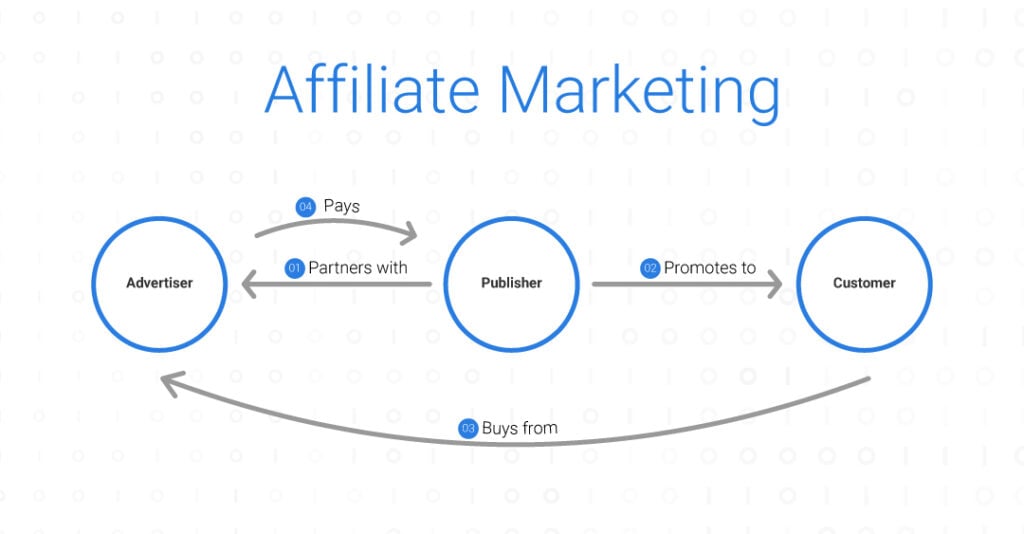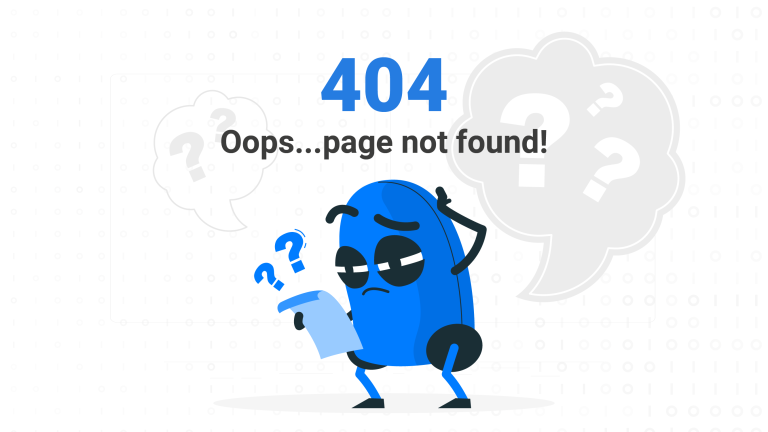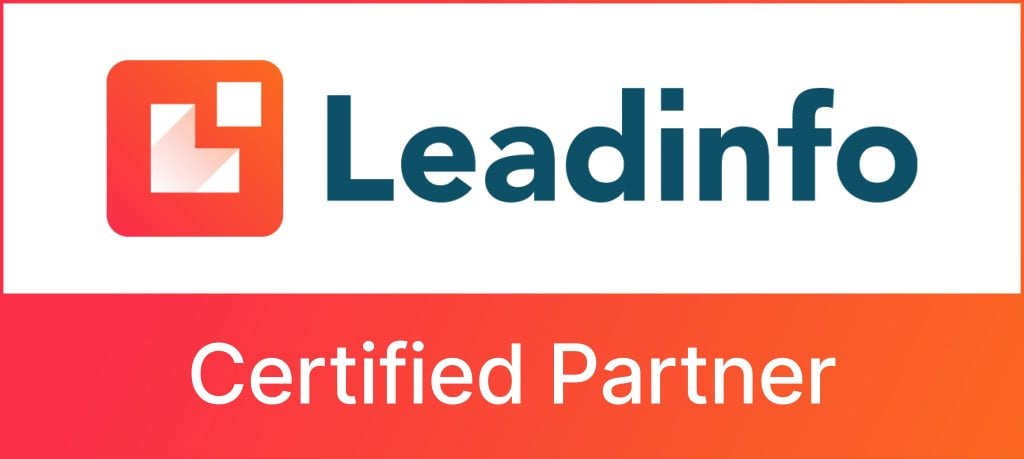Table of Contents
According to a recent report, businesses in the US have gone from spending $5.4 billion to $8.2 billion on affiliate marketing in just five years. Whether through blogging, social media, microsites, email lists or video marketing, businesses utilise affiliate marketing to cast a wider net online.
In light of its burgeoning popularity, it’s important to understand exactly how it works. This article will cover the why and the how to set up marketers and merchants for success.
(For a comprehensive overview of performance marketing options, check out our Definitive Guide to Performance Marketing.)
What is affiliate marketing?
Affiliate marketing is a means of earning a commission by promoting another company’s products or services. Typically, affiliates earn in three different ways: pay per lead, pay per click or pay per install. While it’s a small percentage of the total sales, the cumulative commission can earn marketers a steady income. As for merchants, it’s a relatively low-cost way of reaching new audiences.

What are the different types of affiliate marketing?
There are three types of affiliate marketing: unattached, related, and involved. The degree of affiliation between marketers and product determines which type of affiliate marketing is used.
Unattached
This is when the affiliate marketer does not have any prior connection to the product or service being promoted. As a result, they do not have the expertise to make authoritative claims about its use or benefits.
Generally, an unattached affiliate marketer will include a trackable link that they encourage shoppers to click. The link is PPC (pay-per-click) which means marketers are paid based on clicks rather than conversions.
While unlikely to drive as many sales, unattached affiliate marketing requires little effort on both sides of the agreement. For this reason, it’s a quick and easy way to market a product.
Related
A middle ground between unattached and involved, related affiliate marketing is for marketers who have some relation to the intended audience. Whether they’re part of the same industry or target a specific region, these affiliates have an influence over the niche.
There are advantages and disadvantages of related affiliate marketing. On the one hand, their influence is likely to generate more traffic. On the other hand, they may risk losing the trust of followers by recommending a product they’ve never tried before.
Involved
Unlike the previous two types, involved affiliate marketers have a close connection to the product or service on offer. Having tried the product themselves, they’re able to recommend it to a loyal following with authority.
While this type of affiliate marketing requires more effort and resources to maintain, it will likely reap greater long-term rewards.
What are the benefits of affiliate marketing?
There are number of reasons to consider affiliate marketing:
Low barrier to entry
For start-up businesses that are facing lots of upfront costs, from employees to office rent, there’s rarely a big enough budget for marketing. Fortunately, affiliate marketing simply requires a website and some know-how. In the case that it does not work out, there’s not much to lose and only experience to gain.
Endlessly scalable
Not limited to promoting a single product, affiliate marketers are able to build multiple streams of revenue via different channels. Likewise, merchants may test out affiliate links on various websites and platforms to cast as wide a net as possible.
Mutually beneficial
The reason affiliate marketing has become so popular is that it’s beneficial for everyone involved. As a marketer, there’s infinite potential to increase passive streams of income without having to directly deal with customers. As a merchant, the product will potentially gain wide exposure at a minimal upfront cost.
What are the channels for affiliate marketing?
As mentioned, there’s no one single platform to promote products via affiliate marketing. There are multiple mediums and channels to leverage:
Social Media Influencers
An influencer is a content creator with a strong following and the ability to impact an audience’s purchasing decisions. This can be on any social media platform, such as Instagram, TikTok or YouTube.
If the influencer’s content directly relates to the product, this naturally increases the chances of a successful campaign. Depending on the agreement made beforehand, a campaign may include a number of visual assets, live streams or account takeovers. Alternatively, the merchant and influencer can agree to a period of time in which the influencer posts regular affiliated content
Note that there may not be an overlap between the influencer and merchant in branding and aesthetic. The merchant may set the terms in regards to logo placement, marketing copy and colour usage.
Blogs
As mentioned, there’s no one single platform to promote products via affiliate marketing. There are multiple mediums and channels to leverage:
As bloggers and content writers are able to rank in search engines organically, this can be a particularly effective way of giving a product exposure. In most cases, the blogger samples the product, writes an engaging review and links to the merchant’s site.
Ideally, the best long-form affiliate content reads like a genuine endorsement rather than paid advertising. This requires the influence to have a loyal and trusting subscriber base and subtle skills of persuasion.
Product-specific microsites
Separate from the company’s main website, marketers often create microsites with the sole purpose of driving conversions for a specific product. They are promoted within a partner site or through paid listings on a search engine. Creating relevant content that is laser-focused on a target audience leads to higher quality traffic and more conversions.
Email marketing
This involves leveraging an affiliate’s email subscriber list to promote a product. Whether building an email around the product or simply including a banner with a hyperlink, it’s an effective way of directly reaching a large audience. Needless to say, the success of this type of affiliate marketing relies on the size of the affiliates email list.
Affiliate marketing networks
Purpose-built for affiliate marketing, these big-name media websites are a quick and easy way to gain wider exposure. They use banners and contextual affiliate links to guarantee results. However, for both marketers and merchants there is usually a one-off setup ranging from $500 to $2000 or more. Unlike more informal channels, they’re rates are non-negotiable and can range from 5% to as much as 25%.
Popular affiliate marketing networks in 2022 include ShareASale, ClickBank, Amazon Associates, Pepperjam, and FlexOffers.
How do I become an affiliate marketer?
For those interested in becoming an affiliate marketer, here are a few tips to get started:
Build an audience
First and foremost, cultivate a loyal audience with a niche interest. Whether through long-form content or creating videos, establish authority in an area of interest and allow an audience to build up over time.
Choose the right product
A personal endorsement will always be more effective than a blatant advertisement. Therefore, do plenty of research beforehand and choose products or services that resonate directly with the brand. This will boost conversion rates and establish audience loyalty.
Diversify channels
Instead of focusing on one particular platform, try out different strategies like email campaigns, microsites, blogs, and social media posts.
Final Thoughts
For merchants and marketers alike, there’s no doubt affiliate marketing is a lucrative industry. It’s a low-risk, low-cost means of boosting products and earning commissions. With that in mind, consider incorporating it into your next marketing strategy and let the conversions roll in.
Looking for an agency to advise you on an optimal marketing strategy based on your requirements? Drop us a note at hello@admiral.digital.







